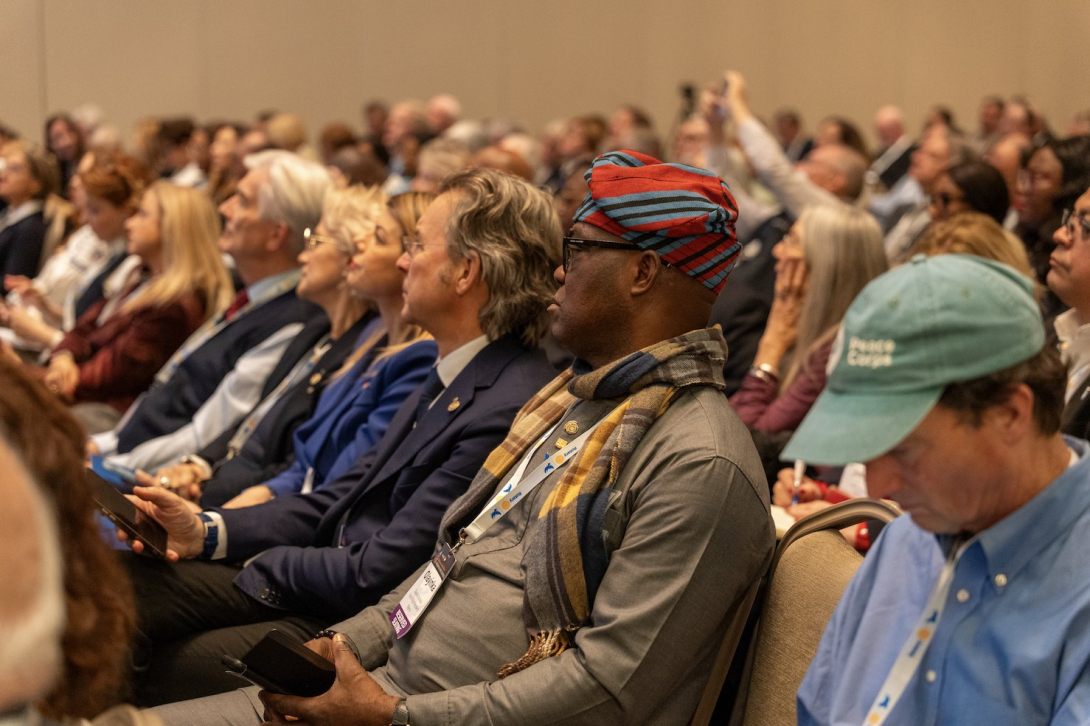
Rotary Seeks Healing in a Divided World
By Rtn Sylvia Nankya
In an era marked by deepening conflicts, rising misinformation, and environmental crises, Rotary International is taking a stand for peacebuilding.
At a recent presidential peace conference in Istanbul, global leaders, peacebuilders, and experts gathered to discuss solutions under the theme Healing in a Divided World.
The event, held last weekend, highlighted key challenges facing peace efforts today.
These included the role of technology in shaping both conflict and reconciliation, the urgent need to address climate change as a driver of instability, and the necessity of confronting historical injustices to foster healing.
Technology and the Fight Against Misinformation
A major concern raised during the conference was the growing impact of misinformation, which is fueling division worldwide.
The rise of artificial intelligence and digital platforms has amplified both opportunities for peacebuilding and the dangers of misinformation.
Sheldon Himelfarb, an award-winning filmmaker and founder of PeaceTech Lab, compared misinformation to other global crises, warning that its effects could be as devastating as war, pandemics, and climate change. He called for a concerted global effort to develop tools for fact-checking, content labeling, media literacy, and AI-driven peace initiatives.
Climate Change as a Catalyst for Conflict
Another key discussion centered on environmental challenges, particularly in the Middle East and Africa. Climate change is increasingly linked to resource scarcity, forced migration, and geopolitical tensions.
Nada El Agizy, president of the Rotary E-Club of Egy-International and a sustainable development expert, warned that the Arab States region is among the world’s most vulnerable to climate change.
Meanwhile, Yana Abu Taleb, director of EcoPeace Middle East, emphasized that sustainable peace in the region is impossible without serious climate action.
Like much of Africa, Uganda faces similar challenges. Erratic weather patterns, prolonged droughts, and deforestation are driving land disputes and migration, particularly in northern Uganda and Karamoja. As environmental pressures intensify, local and international peace efforts must integrate climate resilience strategies to prevent further instability.
Healing from Historical Trauma
The importance of acknowledging past atrocities as a path to peace was underscored by Freddy Mutanguha, a survivor of the 1994 genocide against the Tutsi in Rwanda.
Now the director of the Kigali Genocide Memorial and a member of the Rotary Club of Kigali-Mont Jali, Mutanguha shared how his country has prioritized remembrance as a tool for healing.
“We made a choice that in Rwanda, remembering should also mean healing,” he said. “Our generation needs to break the cycle of hate and build foundations for peace and prosperity.”
His message resonates strongly in Uganda, where the aftermath of civil conflicts—including the Lord’s Resistance Army insurgency—continues to impact communities. Reconciliation efforts, such as truth-telling forums and community reintegration programs, remain crucial for long-term peace.
A New Rotary Peace Center in Istanbul
A highlight of the conference was the introduction of Rotary’s newest Peace Center at Bahçeşehir University in Istanbul. This center, the seventh of its kind worldwide, is designed to equip peacebuilders, particularly from the Middle East and North Africa, with professional development in peace and development studies.
Among the first 13 Rotary Peace Fellows are individuals from Egypt, Iraq, Israel, Jordan, Kenya, Pakistan, Sudan, Somalia, and Yemen. Their projects range from supporting refugee communities to using social media for peacebuilding.
As the conference concluded, Rotary International President Stephanie A. Urchick emphasized the need for long-term commitment and global partnerships in peace efforts.
“The challenges we face today demand nothing less than the combined efforts of governments, nongovernmental organizations, academia, and grassroots organizations,” she said. “By fostering collaboration and sharing resources, we can amplify our impact and drive real progress.”
For Uganda and the world, Rotary’s commitment to healing divisions remains critical. Whether through addressing misinformation, environmental crises, or historical trauma, sustained efforts will be needed to create a more peaceful and united future
